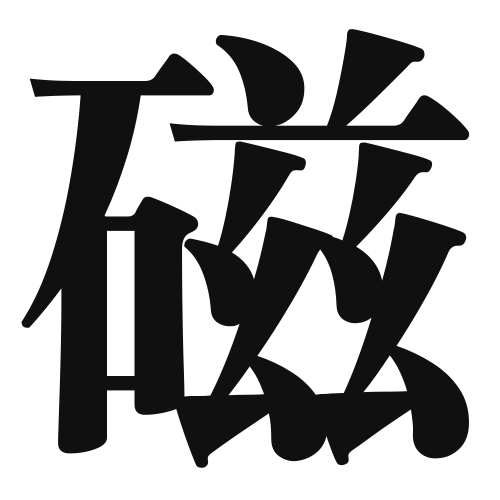1. Overview of Meaning
The kanji “磁” (ji) means “magnet” or “magnetic.” It refers to the property of attracting certain metals and is commonly associated with magnets and magnetic fields.
2. Formation and Radical
The kanji “磁” is a phonetic compound (形声文字) that combines the radical for “earth” (土) and a phonetic component that suggests its pronunciation. The radical 土 indicates a connection to the earth, which is relevant since magnets are often found in natural minerals.
The radical for “磁” is 土, which signifies earth or ground, reflecting the natural origins of magnetic materials.
3. Examples of Usage
Common words that include the kanji “磁” are:
- 磁石 (じしゃく, jishaku) – magnet
- 磁場 (じば, jiba) – magnetic field
Example sentence in daily conversation:
「この磁石はとても強いです。」(このじしゃくはとてもつよいです。) – “This magnet is very strong.”
4. Synonyms and Antonyms
Similar kanji with related meanings include:
- 鉄 (てつ, tetsu) – iron, which is often associated with magnets but refers specifically to the metal itself.
- 導 (どう, dou) – to guide or lead, which can relate to the guiding properties of magnetic fields.
Antonyms include:
- 非磁性 (ひじせい, hijisei) – non-magnetic, referring to materials that do not exhibit magnetic properties.
5. Cultural and Historical Background
The kanji “磁” is significant in Japanese culture, particularly in the context of technology and science. It is often used in educational settings to teach about physics and magnetism.
Proverbs and idiomatic expressions related to “磁” are less common, but the concept of magnetism can be metaphorically linked to attraction in relationships or ideas.
